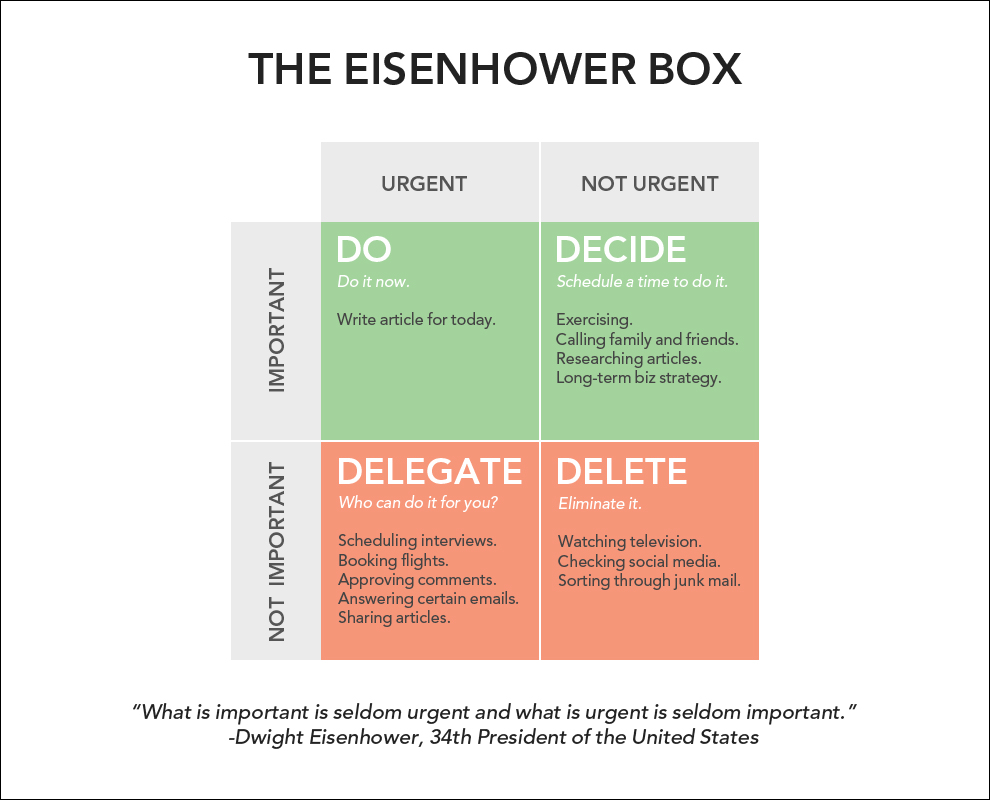The following digs a bit into the details; a reference to find related relationships. In practice, using a few of these tools repeatedly is intended to build speed and make learning easier.
Teams Build Mutual Respect
Whenever practical, work in teams of three (3) to identify, plan, and solve problems. Students have few opportunities to earn respect, and working together to individually teach themselves useful parts to contribute in solving problems, builds self-respect. Building Self-Respect is a motivator for all of us to engage difficult problems with persistence.
Learn to Find Things Efficiently
Learn how to find things quickly on the internet; especially Google Search. Google provides control codes to use with their search engine that accelerates greatly the finding of better pages. Pages that contain more useful information/skills related to what you really are looking for. When searching for information, pay attention to the jargon (industry specific words) and unique phrases, collectively referred to as “keywords and tricky phrases”, that are expressed within the group that shares related useful information/skills with each other. People with certain skills most often share information in a way that similar people have come to agree upon as “common foundations to more directly achieve their goals leading toward greater broad diversity in being able to support accomplishments” (useful). The following link provides examples of some of these shortcuts:
Research Tips & Tricks
Keep Track of what you Research
When writing a report like a journal article, cite where you found supporting information at the end of the report, and before appendices. A simple way of providing a properly formatted reference citation is to use http://www.easybib.com/
Basic Mindset to Learn Anything
- Who is this important to?
- Are there time constraints or potential impacts on other priorities?
- What are my long term goals? (Seek out a mentor to identify gaps from your lack of experience)
- Do not ask mentors what you know how to find and learn from on the internet
- Where am I in relation to my long term goals?
- What do I have to work with, to include other potential collaborators?
- Where do I want to be by the end of this present effort?
- How do I get there?
(organize your research plan, seek out expert information, question authority, broadly consider usefulness) - Are there different solutions to consider that have a better fit?
- Who can I mentor, with what I have learned? (this builds a foundation to help support future efforts)
Pre-Stage Your Efforts, Get Ready
- Write down “who” has an interest in your effort. In addition to you being accountable to them, they and those they know, are potential resources in engaging your plans.
- Get a $1 daytimer (daily calendar) from Walmart and make notes of deadlines. Alternatively, write all the deadlines down on the first page of your 3-ring binder.
- Get a 3-ring binder and “TAKE NOTES”. The human brain only takes notice of a small fraction of the relationships we are exposed to. By “TAKING NOTES” the brain is reminded about how systems of relationships are tied together to create perspectives, so that complex systems of information are meaningful and can be acted upon; by you.
- Write goals down or even blog about them. Setting goals helps the brain select what information is more important, or has higher priorities than others. Set priorities without being self-deceptive. Every goal is composed of tasks that have qualities of Urgency, Importance, and Difficulty. Plot two separate coordinate axis graphs: 1) Importance versus Difficulty, and 2) Importance versus Urgency.
Set Priorities – the Priority Matrix
1) First list in a column every effort you are required/need to complete; the order is not important
2) Put sequential numbers in front of every task
3) Create three (3) additional columns next to the list for Importance, Difficulty, and Urgency (IDU … memory aid “I do”)
4) Based on your experiences and current knowledge, quickly rate each task related to each column
of IDU (0 = low 9 = high)
5) Then plot the numbered identifier of each task on a chart of Importance versus Difficulty
6) Then plot the numbered identifiers of just Quick Wins in a chart of Importance versus Urgency
7) List in order of Urgency all of the tasks that are “Important and Urgent”; and focus on getting them completed as soon as practical; this provides breathing room to act on what is needed next.
The following is the order of priority for the Priority Matrix cycle:
- Quick Wins of Important and Urgent tasks (requires learning why each task is related to long term goals; i.e. consequences),
- Important and Urgent tasks that are more difficult (tasks requiring time to complete before deadlines)
- Important and not Urgent (more than sufficient time to complete after more difficult tasks are finished and no longer urgent)
- Not Important but Urgent (delegate to someone else if practical where the same effort is Important to them, or do something to make the relationship not urgent without hurting long term goals; consider ignoring), and
- Not Important and Not Urgent (ignore it, just care for it so it does not become important, and if it evolves to be important then elevate its priority).
For advanced consideration, frame priorities based on different perspectives. Some of these perspectives might include:
- Example of Making a list of Life Goals
- As we experience life with accomplishments, new goals develop. But recognizing your accomplishments is important so that experience and related confidence build.
- Often, choosing a lofty goal is supported by recognizing needed accomplishment of intermediate goals.
- Career (not necessarily related to maximizing income)
- what brings you joy
- what is important to you
- Department of Labor Occupation Statistics
- Income development (many potential sources)
- Starting a store front business
- Starting a service oriented business
- Starting an online business
- Employment
- Investing (stocks, real estate …)
- … more than one can be done at the same time
- the ability to quickly learn and set priorities is increasingly more important
- Video of how teens can make money
- Family development
- Family support
- Friends development
- Friends support
- Personal health
- Participating in Community leadership
Take Action Now
Starting NOW, each person can begin becoming valued by persistently (not giving up) learning to more efficiently teach themselves USEFUL information and skills needed by USEFUL groups.
Strategic Planning of a career can be outlined by identifying the USEFUL groups (Cohorts) needed to sustain your future goal; and preparing with practiced experience in learning to teach yourself USEFUL information and skills needed by each of those groups. Many of the skills needed are common to many/most Cohorts.
For example, a person might make the following priorities:
Career Goals:
- Be able to consistently support my future family both locally or with a prestigious institution.
- Be able to use my knowledge/skills to altruistically help my community (local, regional, global…)
- Become part of Cohorts where our shared use of available resources sustainably supports our continued efforts
- Develop a core set of skills that allows me to identify and engage diverse opportunities throughout my career
- To work with ____________________
Then with priorities identified, find Related groups:
- http://www.monster.com is a group of people that continually makes available information about local opportunities and opportunities with prestigious institutions
- http://www.google.com is a group of people that provides resources for investigating institutions to learn if they are prestigious and to learn about their corporate culture. Google Search: definition “corporate culture”
- Google Search your city’s representatives and find out what they are concerned about through their contact information
- Each state has a Department of Labor, and that group is dedicated to providing information about employment. Contact them or use the resources they provide to see what the future projected needs are by the time you graduate and the related pay scales. Google Search: YourState “Department of Labor” OR “Bureau of Labor and Statistics”
- Google Search: YourState colleges OR universities
- Find people who can directly provide career guidance, or can refer you to people who can provide career guidance. Google Search: UniversityName “Academic Advisor” OR “Financial Aid”For Native Americans for instance: By going to the following page contact almost any Secretary and they can refer you to an Academic Adviser in whatever field of study you have an interest: http://www.sipi.edu/employees/directory/
The great purpose of higher education is to train the brain to efficiently teach one’s self; to become an expert at anything passionately pursued.
Datalogger Tutorial
Building a Career Pathway
Implementing Professional Acumen
Developing anything requires some skill in Project Management. Implementing project management depends upon Efficient Learning Skills; that are assisted by Research Tips & Tricks. To be a valuable part of a group to usefully choose information and skills to learn and share with the group requires Professional Acumen. To prevent others who want to abuse group resources for their own agendas, skills related to Recognizing Corruption are required; and subsequently what to do to prevent Sustained Corruption.
Growth of group power and influence requires developing a powerful mutually sustaining group. Where member weaknesses are recognized without condescension (Arrogance) nor self-deceit (lack of Self-Respect) and the group together prevents significant harm to the group; all members have weaknesses. Together the group determines a reasonable set of goals, and each member teaches themselves additional skills to support achieving those goals. Demonstrated success creates a reputation of perceived trust in the group and its members. A bad reputation of an individual affects the reputation of the group. So perceived value of the group depends upon training the individual members.
Other persons or groups with control over under-utilized resources, tend to offer access to those resources where there is trust additional under-utilized resources can be developed more than they currently control. The group must be able to show evidence of being a low-risk significant resource for development.
During development, others outside the group who appear to be worthy of Access to Opportunities to earn respect, are provided an opportunity to teach themselves related to a low-risk low-value project benefiting the group. Failure does not significantly harm the group; depending on many factors the person may be trained or excluded from the group. Success means providing the person a higher risk but more significant opportunity to develop. The person learns to mitigate higher risks, by sharing risks with others in the group (mentoring). As a result, a long string of successes benefits both the group and each individual.
A person without Professional Acumen, cannot usefully participate in development, so they are either used a placeholders to implement some form of control, or they are taught to “consistently” express Professional Acumen so they can learn to become a useful part of developments.

